How to Make Public Bathrooms Safer for Covid-19?
- Mavi New York
- Safety
- How to Make Public Bathrooms Safer for Covid-19?
In recent months, as we have been through very challenging times due to the coronavirus pandemic, the importance of personal hygiene and the correct use of public restrooms is understood once more. Nevertheless, scientists are worried that public restrooms are getting less attention than they should get in terms of the spread risk of Covid-19.
Public restrooms are notoriously not the cleanest place however, some simple changes and upgrades of the bathroom usage and maintenance would help prevent Covid-19.
How to Improve the Public Bathrooms to Fight Against the Viruses
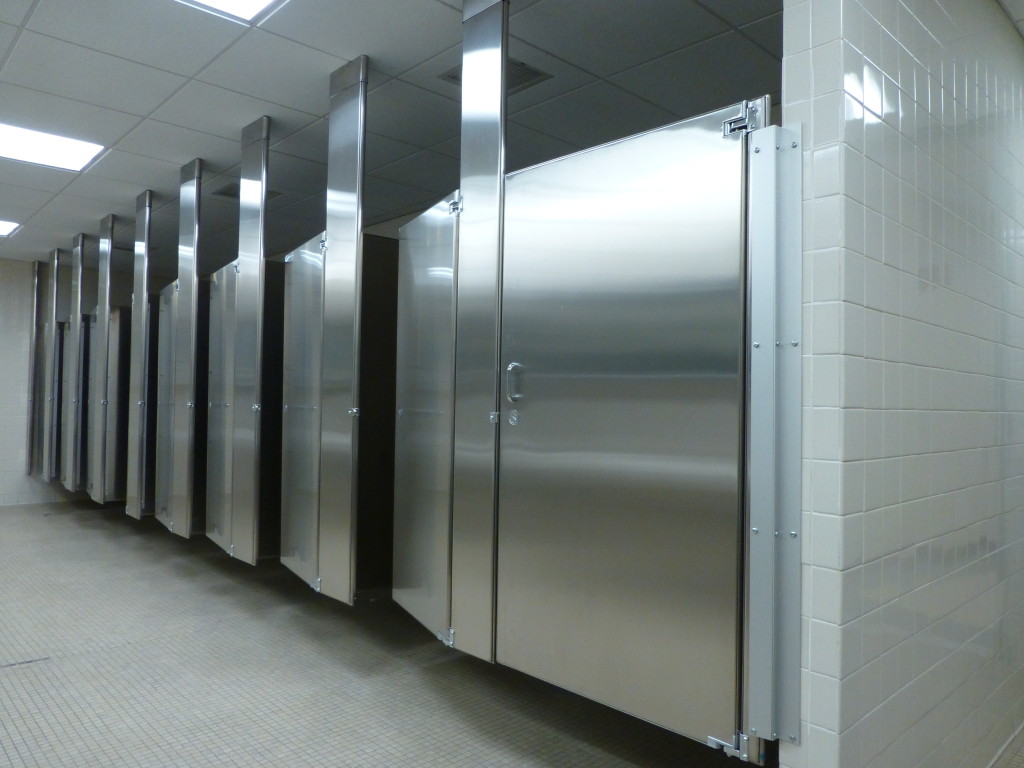
Scientists have agreed on the fact that doorknobs, door handles, sinks, faucets, and this kind of similar high-touch surfaces are high-risk areas of the restrooms. Providing disposable tissues for users can help avoid the spread of the virus. Towel tissue dispenser Bobrick B-262 can be used along with Bobrick B-2300 non-contact waste receptacle. Using disposable tissue for contacting with common surfaces would reduce the spread of the virus.
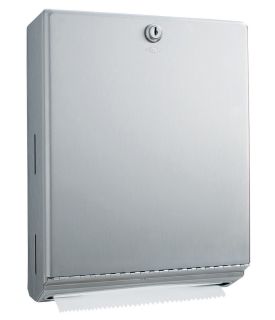
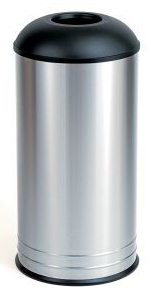
GP 59513 door tissue dispenser and waste receptacle system is another useful product when hygiene is a concern. This practical system can be mounted next to the bathroom door and allows a touchless exit through the door.
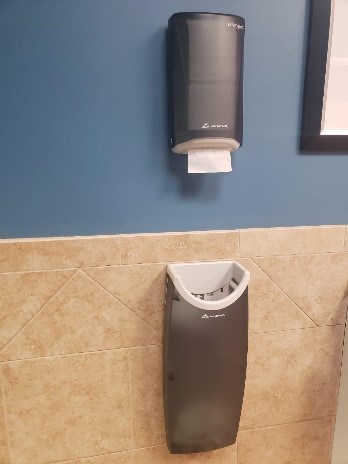
Generally speaking, limited space is dedicated for the public bathrooms because real estate prices are very high in the prima locations of busy cities such as New York City. Therefore, restrooms should be used by a limited number of people at a time during the pandemic. A warning sign stating “One Person at a Time” or “Number of People at a Time” depending on the size of the restroom should be posted.
Less Touch More Prevention
The facility managers should consider supplying seat cover dispensers along with touchless soap dispensers for the public bathrooms. Providing these items in the restrooms will reduce the surfaces that are being touched. We suggest you check out the Bobrick B-221 seat cover dispenser and Bobrick B-2012 automatic soap dispenser to fight to prevent spreading the virus.
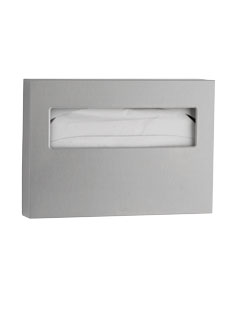
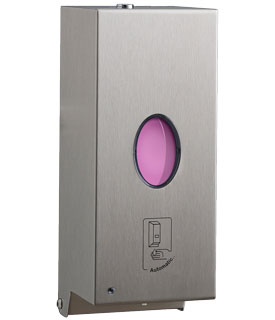
Soap Dispenser
The toilet partitions’ doors are frequently touched objects in the public bathrooms. Architects, designers, property owners, and managers should consider bacteria resistant materials when choosing the toilet partitions. Our “Toilet Partition Material Selection Guide” can be referred to compare a variety of materials and their properties.
High bacterial resistance material includes Solid Surface, Solid Plastic, Phenolic Black Core, Color-Thru Phenolic, and Glass. Mavi New York offers antimicrobial accessories on its “European Style Toilet Partitions”.
Anti-microbial accessories have the highest properties fighting against viruses and bacteria.
Some of our projects such as Exhale Spa New York – Central Park South and Upper East Side, and Hotel Le Bleu, Brooklyn were completed with antimicrobial accessories.
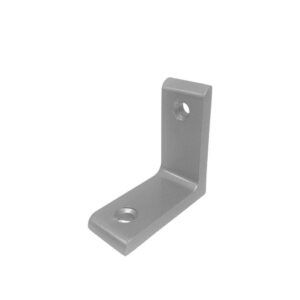
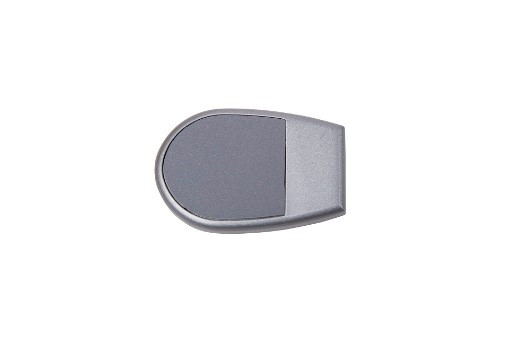
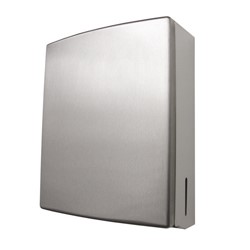
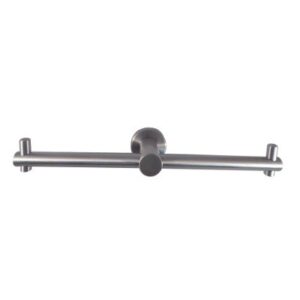
A “sink divider” screen can be used on the countertops to prevent air transmission in high traffic public bathrooms such as Schools, Hospitals, Nursing Homes, Stadiums, etc. Solid Surface (also known as Corian) and Solid Plastic (HDPE) sink divider screens are highly resistant to germ, mold, mildew, and odor. Another advantage of these materials is easy-to-clean.
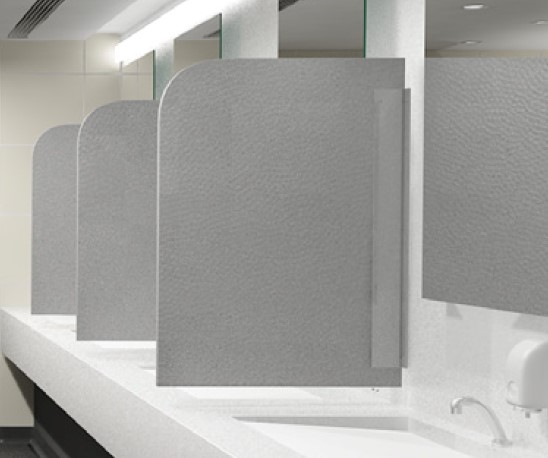
Previous studies have shown that flushing the toilet can aerosolize fecal waste and spread these small particles (known as toilet plume). The aerosolized fecal waste due to flushing is to rise to three feet as aerosol droplets. A study on hospital bathrooms found that the amount of the particles in the air spiked after a toilet was flushed, and the concentration in the air remained high for 30 minutes. Another study using computer simulations showed that the density of the particles rose above the toilet seat and remained hung in the air, and these particles could remain in the air. Therefore, it is recommended that a sufficient ventilation system should be provided in the washrooms. A negative air machine such as Dri-Eaz DefendAir HEPA 500 Air Scrubber can be used to improve the air circulation along with the existing ventilation system.
HEPA 500 Air Scrubber can be used to improve the air circulation along with the existing ventilation system.
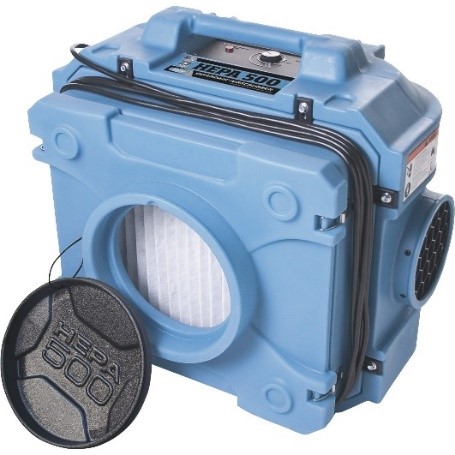
For more information please do not hesitate to contact our design team.
